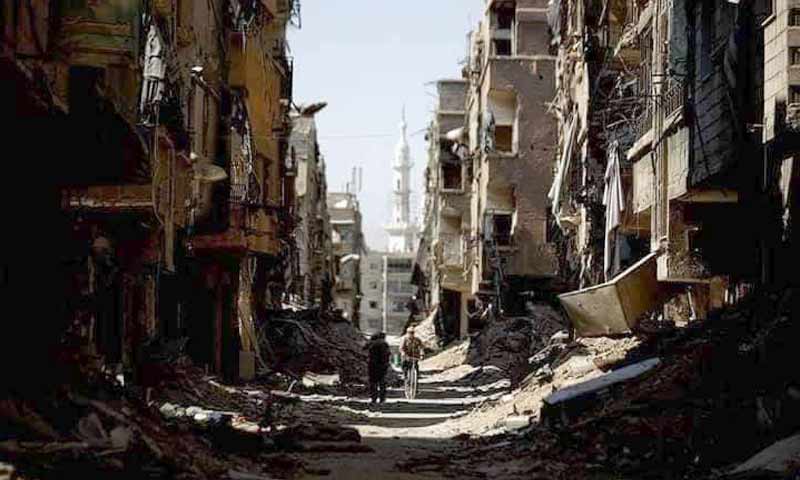Damascus governorate started receiving residents’ return requests to Yarmouk camp, south of the Syrian capital, Damascus, starting from 10 November, under three conditions.
According to the Russian Sputnik news agency, Anwar Abdul Hadi, the Director of the Political Department of the Palestine Liberation Organization (PLO), has said that the residents’ return process would go through three stages. The first stage would be submitting applications, the second a structural checkup of the house, and a study of its habitability, while the last stage would be to approve restoration and housing.
“Unfortunately, the international community, dominated by the United States, considers the Yarmouk camp as part of Damascus city, with no regard for its peculiarity as a gathering place of Palestinian refugees,” Abdul Hadi said.
He also refused to link the camp’s reconstruction plan with Syria’s reconstruction in general, conditioned by a political solution by the international community.
On 5 October, the Executive Office in Damascus governorate set three conditions that allow the Yarmouk camp residents to return home.
Samir Jazairli, a member of the Executive Office of Damascus governorate, said that the governorate “is working to facilitate the residents’ return, who have been forcibly displaced by terrorism, to the Yarmouk camp under three conditions,” according to the local newspaper “al-Watan.”
The conditions included structural safety of properties, proof of ownership, and obtaining required approvals.”
As for the Yarmouk camp residents, they continue to demand a return to their properties to end their living and economic sufferings.
The “United Nations Relief and Works Agency for Palestine Refugees in the Near East (UNRWA)” predicted in its report the “Emergency Appeal 2020” that most of the Yarmouk Camp’s population (between 500,000 and 600,000 persons, of which 160,000 are Palestinian refugees) would remain in displacement.
The report also pointed out the limited access to the camp and the enormous magnitude of destruction there.
The Yarmouk camp currently hosts between 100 and 150 families, some of whom experienced the camp siege and lived there throughout that period from 2013 to 2018. While the other part is the families of the Palestinian factions, who fought alongside the Syrian regime.











